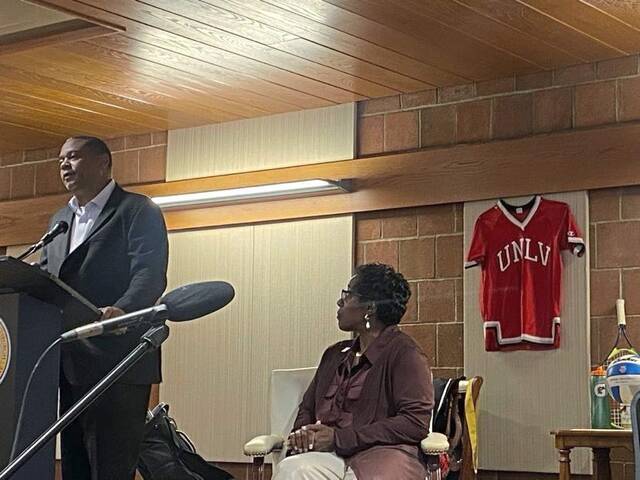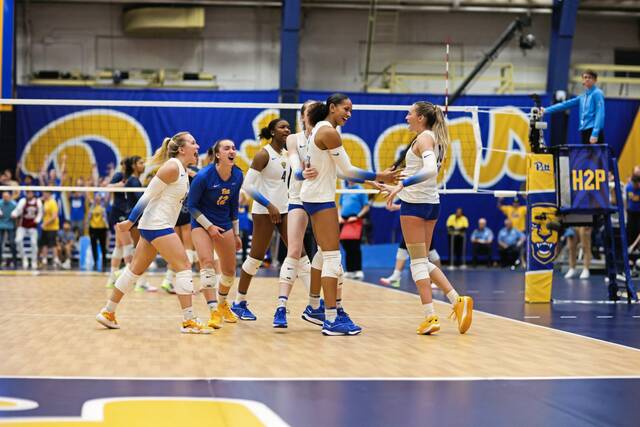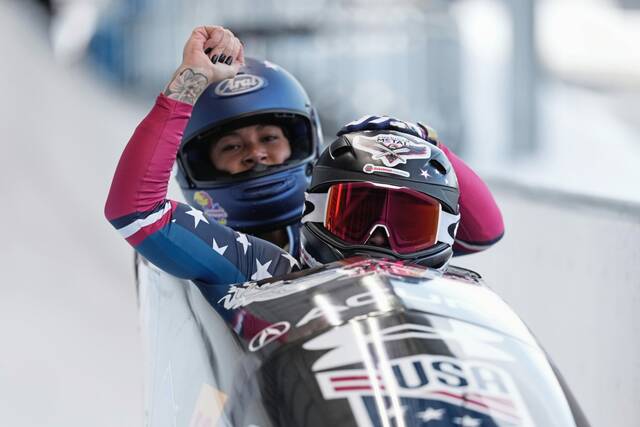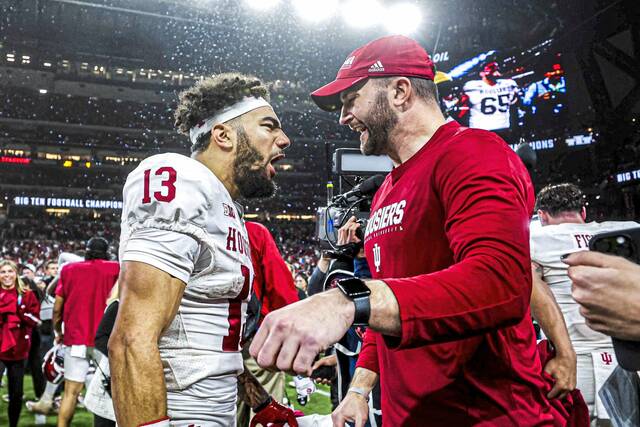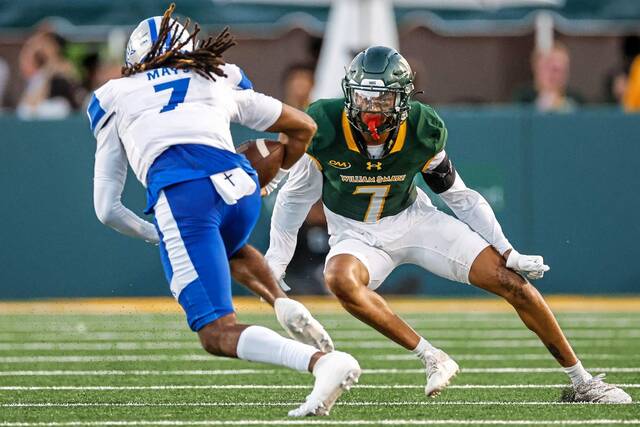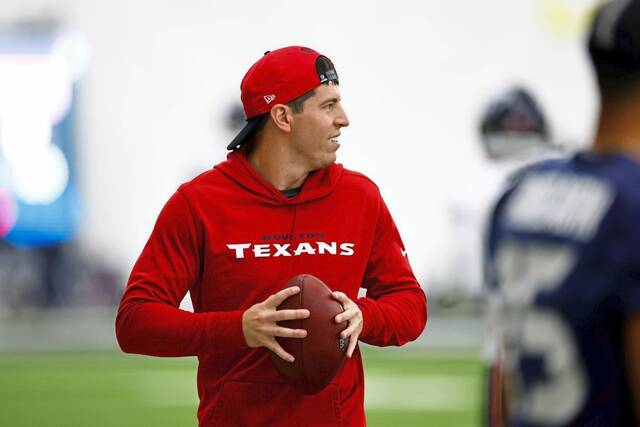Whether referring to it by its long title or its nickname, nationwide advocates of Title IX — the landmark civil rights law enacted as part of the Education Amendments of 1972 — recognize its impact.
Closer to home, the birth of Title IX some 52 years ago, as well as its steady but subsequent immense growth, were not only remembered on Thursday but moreso cheered as signs of hope and aspiration during a morning celebration at Schenley Park Skating Rink.
“Today is all about awareness,” said Karen Hall, a former women’s basketball player and coach and the catalyst behind a third consecutive year of bringing people together to remember the reason for Title IX’s existence.
“It affects every last one of us in our spaces of work and play.”
Hall, a graduate of the former Mt. Alvernia High School who went on to play women’s basketball at UNLV, suggested there’s always seemingly misconceptions about Title IX’s purpose.
Her vision in 2022, she said, when the law turned 50, was to bring real awareness to it.
With support from the City of Pittsburgh Mayor’s Office and the Department of Parks and Recreation, Hall has shone a light on the subject of women’s accomplishments from a theme of “Building a Brighter Future!”
“Back in pre-1972, pre-Title IX, the opportunities for women to go to college and do masters and doctorate work were not there,” she said. “If you were in college and you were a woman, you were going to go and get a teaching degree or a nursing degree. Today you can go and get whatever you want, post-Title IX. That is how far we’ve come.”
She cited such budding opportunities as women coaching men’s sports and officiating NFL games.
“We have women’s professional leagues now,” Hall said, pointing to Pittsburgh’s teams, the Passion of the Women’s Football Alliance and the Riveters of the United Soccer League W-League.
The theme, “Building a Brighter Future!” resonated inside the rink’s banquet room as rain fell outside and drizzled along the building’s windows. It was a reminder of a darker time, a gloomier era.
But Pittsburgh mayor Ed Gainey reminded his listeners of the steady traction that Title IX has offered women in their fight over the years for equal time.
“There’s no question the WNBA is on the verge of elevation,” he said. “There’s no question that when we talk about women’s volleyball at the University of Pittsburgh that it’s growing. There’s no question that when we talk about athletics, such as women’s soccer, that it’s growing.”
Gainey, a self-proclaimed “basketball fanatic,” who said he used to watch Hall play on the court at Peabody, his high school alma mater, and referred it as “my court,” paid tribute to women of the past for using their “blood, sweat and tears” in order for us to get to where we are today.
“When I think back to what the title is today (“Building a Brighter Future!”), it’s amazing how it takes time to change culture,” Gainey said. “Sometimes, we forget about the women who came before the women who are playing in the WNBA right now, and how much they had to sacrifice, and how much they had to give for the WNBA to be where it is right now.
“In order for a brighter future to happen, someone had to pay the price, someone had to sacrifice.”
Title IX is remembered across the nation’s college campuses as a sign of more than just athletics. It’s a vehicle for much more, according to Carnegie Mellon softball coach Monica Harrison.
“Title IX has brought so many amazing things to college campuses with regards to safety and well-being and support for women,” she said. “That’s something we miss a lot because we think about the athletics side of it. The other side of it is phenomenal.”
Donna Sanft, a retired executive associate athletics director and associate dean of students at Pitt, wondered how to keep the spirit of Title IX alive.
“People have to understand what it is,” she said. “If you know the benefit of sports for your sons, it’s also good for your daughters.”
The event featured an array of guest panelists to offer discussions on Title IX’s effects and the direction the rule is going in a time of rising political rhetoric.
“I watched how far women’s basketball has come,” Gainey said, “and I probably without question watch the WNBA more than I watch the NBA. The reason is because I see passion and not commercialism. I see people who are really out there trying to make a difference. And it means a lot to be able to see that because it speaks about the devotion of where they got the sport from.”
In addition to Harrison and Sanft, other panelists included Camila Rivera-Tinsley, CEO of the Women and Girls Foundation; Amy Scheuneman, a former WPIAL executive director and current youth program director of P3R: Keeping Pittsburgh Moving; former Pitt basketball great Jennifer Bruce Scott; and TribLive reporter JoAnne Klimovich Harrop.
Also, for the first time, the panel included college athletes. The inaugural group was comprised of Carnegie Mellon softball player Libby Eichberger, La Roche basketball player Machia Hairston and Robert Morris track and field athlete Alex Pearson.




